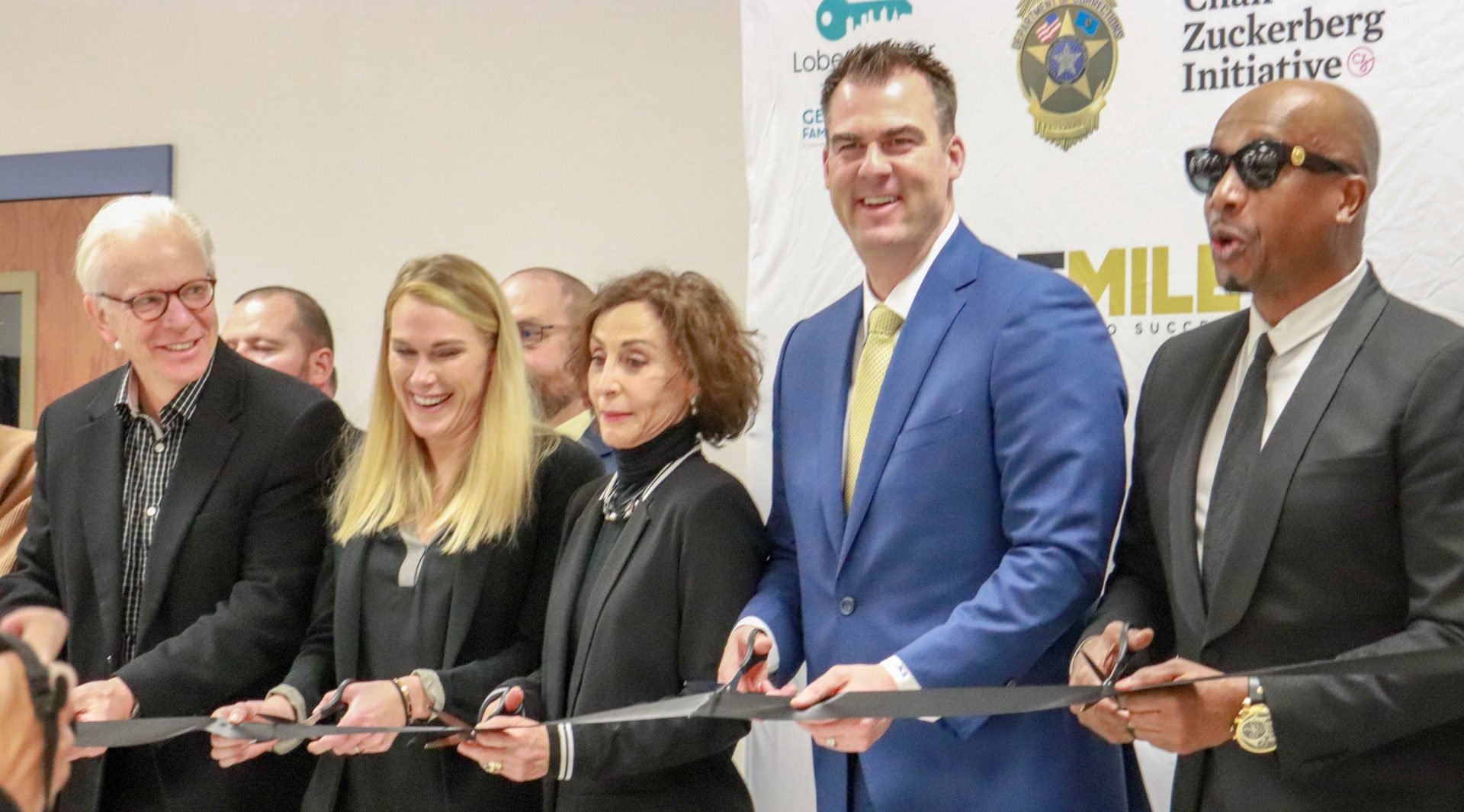
Gov. Kevin Stitt alongside musician MC Hammer and representatives of the Last Mile program unveil a coding program inside the women's prison Mabel Bassett Correctional Center in McCloud.
Quinton Chandler / StateImpact Oklahoma


Gov. Kevin Stitt alongside musician MC Hammer and representatives of the Last Mile program unveil a coding program inside the women's prison Mabel Bassett Correctional Center in McCloud.
Quinton Chandler / StateImpact Oklahoma

Quinton Chandler / StateImpact Oklahoma
Gov. Kevin Stitt, musician MC Hammer and representatives of the nonprofit Last Mile program unveil a coding program inside the women’s prison Mabel Bassett Correctional Center in McCloud.
Criminal justice measures moving through the legislative process got a boost this week as Gov. Kevin Stitt announced a new initiative Wednesday focused on giving offenders second chances.
In addition the governor wants to change the way district attorneys and courts are funded. Currently, criminal defendants’ fines and fees to fund much of the criminal justice system. Stitt also wants to spend an additional $10 million on treatment and education programs that steer people away from prison.
A number of community leaders and reform advocates praised Stitt’s proposals, but some, including Democratic lawmakers, said much more action is needed.
Nicole McAffee, the smart justice campaign manager for the ACLU of Oklahoma suggested the governor’s proposal was “business as usual.”
McAffee criticized the proposal for not mentioning several reform bills already in the legislative process that would soften sentencing laws, loosen restrictions on parole eligibility, adjust potential sanctions and financial burdens for people on probation, revise required jury instructions and require courts offer people arrested for most nonviolent felonies and misdemeanors affordable bail terms.
She also criticized Gov. Stitt’s proposal to write a commutation process into the State Question 780 retroactivity bill. A commutation process could be used to determine which prisoners should have their sentences reduced. Earlier in the session, a state prosecutor suggested to StateImpact the governor should authorize a commutation process through executive order instead of passing the retroactivity bill.
McAffee said the governor’s suggestion has not been debated publicly or in the Legislature and would replace a sentence modification plan negotiated earlier in the session.
Some of the reform measures would be added to bills currently in the legislative process, but some of them are new proposals. This presents a timing challenge for lawmakers because the legislative session is scheduled to end May 31.